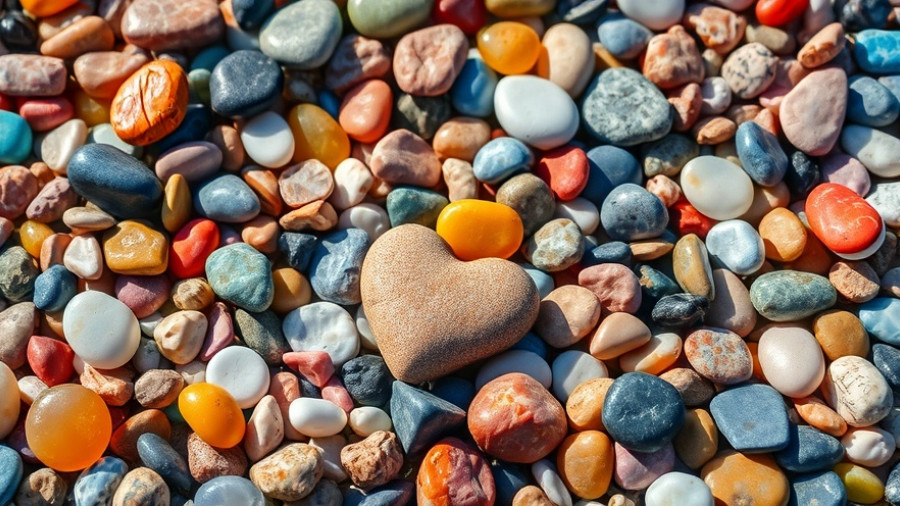
Why You Should Care About Where Your Clothes Come From
In a world dominated by rapid fashion cycles and convenience, clothing might seem like just another product we purchase without a second thought. Yet, have you ever asked yourself: "Who grew my clothes?" Just as we consider the origins of our food, it’s time to turn our attention to the fibers that adorn our bodies. Many of us may not realize that the clothing industry has one of the largest environmental footprints, dwarfing even aviation and shipping in its carbon emissions. With each garment purchase contributing to pollution through water use, chemical treatments, and waste, it's crucial to rethink our consumption patterns.
Your Fashion Choices Impact the Planet
Clothing production is often hidden behind factory walls, where the unsustainable practices are rarely acknowledged. For example, polyester clothing has become ubiquitous, but it brings a nasty side effect: microplastics pollution. These tiny particles come from washing synthetic fibers and accumulate in our waterways, affecting marine life and ultimately, human health. Shockingly, consumers now buy five times more clothing than they did twenty years ago, tossing out clothes at a staggering rate of one garbage truck every second. This practice is not sustainable, nor is it healthy for the planet.
The Rise of Fibresheds: A Local Solution
Fortunately, there’s a growing trend known as fibreshed, which functions much like a local food system but focuses on textiles. Launched in California in 2011, fibresheds connect local producers — from farmers to designers — all aiming to create sustainable clothing options within their communities. This model encourages collaboration, supports local economies, and protects natural resources. By choosing to support these initiatives, families can make informed decisions that benefit their health and the environment.
Choosing Natural and Local Fibres: What’s Available?
When considering sustainable clothing options, it's important to know what fibers are available. Natural fibers like linen, hemp, cotton, silk, and wool are all excellent choices, supporting local growers who raise crops or livestock compatible with regional climates. For instance, Tara Klager's Alberta-based farm highlights how selecting heritage sheep can lead to hardier strains that require fewer resources. This method not only promotes biodiversity but also ensures quality fibers that are kinder to the environment.
The Importance of Local Production
Exploring local textile options can open up a world of sustainable goods. Beyond clothing, think about other uses for natural fibers such as rugs, blankets, dishtowels, and more. By integrating these products into your home, you’re not just decorating; you’re supporting a local economy and reducing your carbon footprint.
Promoting Healthy Lifestyle Choices Through Conscious Fashion
Just as we promote healthy eating and wellness through nutrition, we can adopt a similar mindset for our wardrobe. Making mindful clothing choices can have an impact on our overall well-being. There are numerous parallels between nutrition and sustainable fashion. Both advocate for a deeper connection to the source of our products, whether that’s food or apparel. As responsible consumers, we can champion brands prioritizing environmental health, supporting those committed to sustainable practices.
Mindfulness in Consumption: Practical Tips
Here are some practical steps you can take to embrace a more sustainable wardrobe:
- Research Brands: Look for companies that practice fair trade and sustainability. Online resources and apps can guide you in identifying ethical brands.
- Support Local: Buy from local artisans and farmers’ markets. Not only will you get unique pieces, but you also support your local economy.
- Second-Hand Shopping: Explore thrift stores and online marketplaces. This practice not only extends the lifecycle of garments but also reduces demand for new production.
- Mindful Consumption: Try to buy only what you need. Ask yourself if you truly need an item before making a purchase. This can decrease the impulse for fast fashion buys.
- Educate Others: Share your findings with friends and family. Join community workshops or discussions on sustainable living to further amplify awareness.
Creating a Healthier Future Together
As parents and guardians, it’s our responsibility to cultivate a sustainable approach not just to our diets but also to our wardrobes. By adopting a mindset of mindful consumption, we can set an example for future generations, teaching them the importance of where their clothes—and food—come from. Embrace this change, support local communities, and make conscious decisions that lead to a healthier planet for our children.
Start your sustainable journey today by exploring local fibreshed options and sharing your commitment to mindful living!
 Add Row
Add Row  Add
Add 




Write A Comment